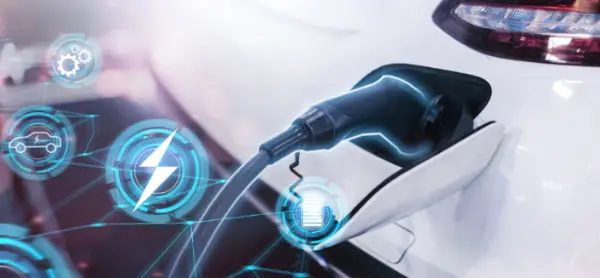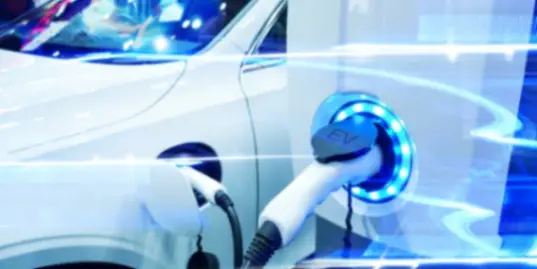EV Charging Station: The Ultimate guide for buying one
With the increasing popularity of Electric vehicles, the need for EV charging is also increasing. Purchasing the right EV charging station/ EV charger for your application can be a daunting task; but you can take an informed decision with some prior knowledge about the topic.
Find out what is an Electric Vehicle EV Charging Station; how does it work & what you should consider before buying one!!
What is an EV Charging Station?
An EV Charging Station also known as wallbox is typically an AC or DC EV charger that supplies power to the electric cars. It makes electric car EV charging more accessible, convenient, and affordable for all people. Electric Vehicle Charging Station are mostly used in private spaces such as Homes and public spaces such as Workplaces, Hotel Buildings, Restaurants, Petrol Pumps, Private Shops or Car Parks. An EV Charging Station usually hangs on the wall; however, it can also be mounted on a stand or pole. There are three levels or types of EV charger options available to charge your electric car.

Level of Charging
For charging an EV; there are three levels of charging : Level 1 (AC), Level 2 (AC), and Level 3 (DC)
→ Level 1 charger is an AC EV Charger that uses a standard household mains socket with maximum rated current capacity of up to 16A or 3.3kW in India. This is usually a 3.3kW Portable EV charger which can be carried anywhere to charge the car from home to hotels to restaurants. These are the slowest of all EV charger and suitable for overnight charging.
→ Level 2 charger is also an AC EV Charger but with higher current and power capacity viz 32A and more for single and three phase. They come in 7.4kW, 11kW, 22kW and 43kW variants. AC EV Charger 22kW and above can be considered as fast chargers.
→ Level 3 charger is DC EV Charging Station with high current and power capacity starting from 15 kW, 30 kW, 60 kW and more. These are mainly available in wallbox or ground mounted units and remain fixed at a particular location. DC EV Charging Station are considered as fast EV charger.
These level of EV charging have been explained in detail in e-amrit government website: https://e-amrit.niti.gov.in/standards-and-specifications
Level | Power (kW) | Current (A) | Phase | Type | Typical Application |
Level 1 (AC) | 3.3 kW | 16 A | Single | Portable | Home |
Level 2 (AC) | 7.4 kW | 32 A | Single | Portable/ Wallbox | Home/ Workplaces/ Hotels/ Parking bays |
11 kW | 32 A | Three | Wallbox EV Charging Station | ||
22 kW | 32 A | Three | Wallbox EV Charging Station | Home/ Workplaces/ Hotels/ Other commercial applications | |
43 kW | 63 A | Three | Wallbox EV Charging Station | ||
Level 3 (DC) | 15 kW | 22 A | Three | Wallbox EV Charging Station | Public EV charging station |
30 kW | 45 A | Three | Wallbox/ Ground mounted EV Charging Station | ||
60 kW & more | 87A & more | Three | Ground mounted EV Charging Station |

Portable EV Charger vs Wallmount EV Charging Station
Portable Charger: Use and Installation
This type of charger can not only be used at home, but can also be taken wherever the car travels. This does not need any installation and can be used wherever there is an electric socket with MCB and sufficient electric load available.
Wallmount EV Charging Station: Use and Installation
In comparison, this type of EV Charging Station is permanently mounted on the wall or on the stand or ground mounted and therefore; it is only suitable for stationary operation. It must be properly installed at the premises by any electrician before use. Such EV Charger have external MCBs along with an emergency stop switch to operate them and hence they have a much safer operation and are more durable than portable chargers.
AC and DC EV Charging Station
AC EV Charging Station provide AC Power to the car and the car then uses its On-Board Charger (OBC) to convert this AC Power to DC Power. The battery packs of all cars store DC Power in them and an On-Board Charger as the name suggests is a charger pre-installed in all Electric Cars by their respective manufacturers that converts the AC Power supplied to the car to DC Power. They are available in 3.3kW, 7.4kW, 11kW, 22kW and 43kW variants for Electric Cars.
When the electric car is connected to the EV Charging Station with a charging gun cable, the car and the wallbox start to communicate with each other. The OBC of the Electric Car verifies how much current it can handle and accordingly it starts drawing current from the EV Charger.
DC EV Charging Station provides DC Power directly to the battery pack of the car while by-passing the OBC since they have in-built AC to DC Power converter in them. They are available in 15kW, 30kW, 60kW, 120kW, 150kW and higher.
Decision making parameters
Choosing the right EV Charging Station to buy from these depends upon:
1. Budget,
2. application area,
3. Power availability i.e. electric load available at the premises; which is easily upgradable
4. Battery capacity and On-Board charger (OBC) of car
If the charger has home application; then Level 1 or Level 2 may be sufficient which even has some fast charging options provided the car OBC supports the fast charging. If an EV Charger is needed for commercial applications; then high Power Level 2 charging or Level 3 charging should be considered. Level 3 charging is typically used for public EV charging station or on long road trips and is very expensive to purchase and maintain.
Budget
Portable EV charger are available in the range of Rs.17,000/- to Rs.30,000/- for both 3.3kW and 7.4kW. They can be used for charging medium battery capacity cars upto 40 kWh at home for overnight charging.
AC EV Charging Station (Wallbox) cost ranges from Rs.30,000 to Rs.1 Lakh depending upon the power (kW) capacity from 7.4kw to 43kW. They have safer operation than portable EV charger and are more durable. Fast chargers of 22kW and above can be used for charging higher battery capacity cars upto 70 kWh in some 3-4 hours provided the respective car’s OBC support these fast EV charger. For example;
- If your car’s OBC power capacity is 3kW and
- you have installed a 7.4kW or higher AC EV Charger;
- your Electric Car will still charge at 3.3kW ONLY because of the car’s OBC capacity limitation.
Application area
For commercial applications, AC EV Charging Station of high power can be installed; however such EV Charger charge the car at the car’s OBC capacity and not more!! But this is still a good choice if there is a constrained budget.
DC EV Charging Station are the costliest with their cost ranging from Rs.5 Lakh to 25 Lakh depending upon the power (kW) capacity. They are mainly used in public EV charging station and are considered to be the fastest EV charger. Irrespective of the car’s internal OBC parameters; a 30 kW EV Charging Station can charge a 60kWh battery capacity car in 2 hours!!
These factors for making a buying decision are just the beginning
With increasing companies offering various variants of EV Charging Sation, choosing the right company for purchasing an EV charging station is also very crucial for your EV charging needs. The enclosure of the wallbox can be a very important factor for safety of the EV charging station. Stainless Steel enclosures and Mild Steel enclosures are more rugged and durable (being water, fire and breakage resistant) than plastic polycarbonate enclosures. Further, importance should be given to the safety devices used in the EV charging station. In addition to this, after sales service provided by companies is also a very important parameter in decision making.
Get in touch with PM Electronics today to get the best in quality rugged and safe EV Charging Station at an affordable price with the best after sales service support in the industry!!
